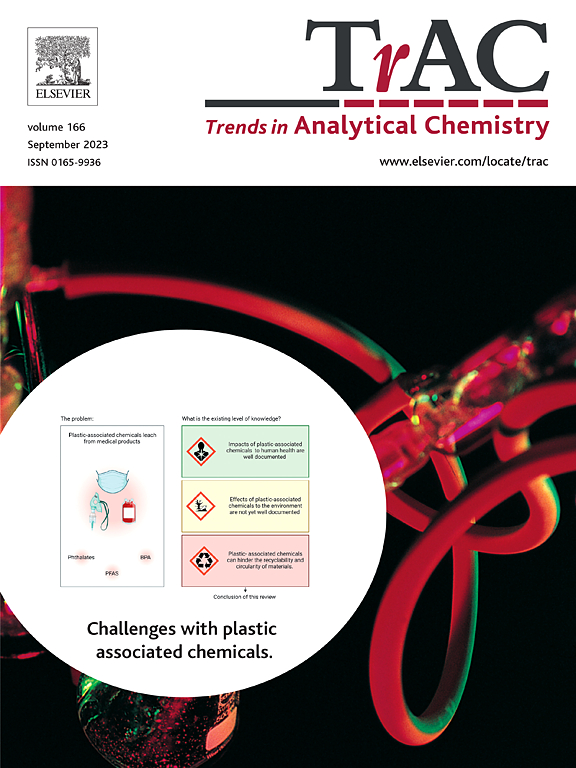Artificial intelligence for method development in liquid chromatography
IF 11.8
1区 化学
Q1 CHEMISTRY, ANALYTICAL
引用次数: 0
Abstract
Method development in liquid chromatography is an important process in building up qualitative analytical methods that allow the separation and quantification of all compounds in a mixture. It is often a demanding process due to its time-consuming, resource intensive, and costly nature. This review explores the integration of artificial intelligence and machine learning to assist in and speed-up the method development process. The utility of Quantitative Structure-Retention Relation models in the screening phase of the method development is first addressed, with a particular focus on advanced molecular representations that utilize deep learning architectures, enabling more detailed molecular descriptions. Secondly, optimization algorithms that can automate and accelerate the optimization phase of the method development are discussed. Notable advancements include Bayesian optimization and reinforcement learning for the self-optimization of chromatographic parameters. Furthermore, artificial intelligence-based signal processing methods are reviewed, along with their role in the automation of the method development process. Despite these advancements, challenges remain in achieving a fully automated and experimentally efficient method development, and further improvements in molecular modelling, experimental design, and signal processing are needed. This review provides insights into current methodologies, future directions, and existing gaps in artificial intelligence-assisted method development, highlighting its potential impact in analytical chemistry.
液相色谱方法开发中的人工智能
液相色谱法的方法开发是建立定性分析方法的重要过程,可以对混合物中的所有化合物进行分离和定量。由于其耗时、资源密集和昂贵的性质,它通常是一个要求很高的过程。本文探讨了人工智能和机器学习的集成,以协助和加速方法开发过程。首先讨论了定量结构-保留关系模型在方法开发筛选阶段的效用,特别关注利用深度学习架构的高级分子表示,从而实现更详细的分子描述。其次,讨论了能够自动化和加速方法开发优化阶段的优化算法。值得注意的进展包括用于色谱参数自优化的贝叶斯优化和强化学习。此外,还回顾了基于人工智能的信号处理方法,以及它们在方法开发过程自动化中的作用。尽管取得了这些进步,但在实现完全自动化和实验有效的方法开发方面仍然存在挑战,并且需要在分子建模,实验设计和信号处理方面进一步改进。本文综述了人工智能辅助方法开发的当前方法、未来方向和现有差距,并强调了其在分析化学中的潜在影响。
本文章由计算机程序翻译,如有差异,请以英文原文为准。
求助全文
约1分钟内获得全文
求助全文
来源期刊

Trends in Analytical Chemistry
化学-分析化学
CiteScore
20.00
自引率
4.60%
发文量
257
审稿时长
3.4 months
期刊介绍:
TrAC publishes succinct and critical overviews of recent advancements in analytical chemistry, designed to assist analytical chemists and other users of analytical techniques. These reviews offer excellent, up-to-date, and timely coverage of various topics within analytical chemistry. Encompassing areas such as analytical instrumentation, biomedical analysis, biomolecular analysis, biosensors, chemical analysis, chemometrics, clinical chemistry, drug discovery, environmental analysis and monitoring, food analysis, forensic science, laboratory automation, materials science, metabolomics, pesticide-residue analysis, pharmaceutical analysis, proteomics, surface science, and water analysis and monitoring, these critical reviews provide comprehensive insights for practitioners in the field.
 求助内容:
求助内容: 应助结果提醒方式:
应助结果提醒方式:


